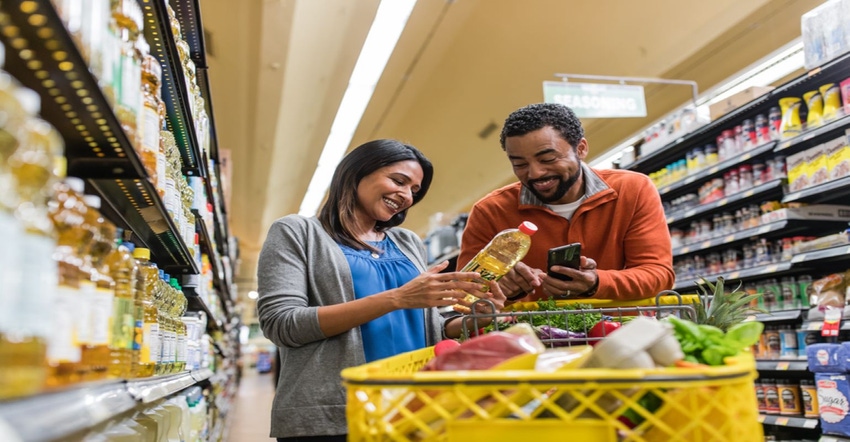Survey: 55% of consumers more likely to purchase sustainable food products
Sustainability considerations now influence the majority of the world’s grocery shoppers when buying packaged foods such as potato chips and cookies, according to Cargill’s most recent global FATitudes survey.

The proprietary research finds 55% of consumers indicate they’re more likely to purchase a packaged food item if it includes a sustainability claim, a four-point jump since the company last fielded this research in 2019.
“Our latest findings clearly demonstrate that messages surrounding sustainability are having an impact on consumers,” said Nese Tagma, managing director of strategy and innovation for Cargill’s global edible oils business. “Insights like these help guide our consumer-focused approach to innovation, enabling us to partner with customers to co-create new products and solutions that reflect current consumer trends and ingredient preferences.”
The survey is pivotal to these efforts as it provides a window into consumers’ awareness, perceptions and behaviors around the fats and oils found in packaged food. The latest global survey, conducted in summer 2021, included approximately 6,000 primary grocery shoppers in 11 countries.
In this most recent round of research, an increased interest in sustainability was the most notable change from the previous survey’s results. More than half of the countries surveyed showed an increase in the influence of sustainability claims, with the change most evident in the following countries:
Brazil and Mexico, which both saw 13-point increases in the purchase impact of sustainability claims between 2019 and 2021. Sustainability claims now drive purchase decisions for 74% of consumers in Brazil and 66% in Mexico.
India posted double-digit increases, with 67% of consumers indicating they were more likely to purchase packaged food with sustainability claims, up 11 points from 2019.
In the U.K., 51% of consumers now say they place a greater emphasis on sustainability, an 8 point jump in just two years.
U.S. consumers were also more attuned to sustainability claims; 37% indicated they were more likely to purchase packaged food with a sustainability claim, a 6-point increase compared to 2019 results.
For the first time, the survey also asked consumers what type of sustainability claim they were looking for. “Sustainably sourced” and “conservation of natural resources” topped the list, ranking well ahead of more specific claims such as Fair Trade, reduced packaging and fair/living wages in most every country included in the survey.
“These insights further affirm our commitment to embed sustainable practices into every aspect of our operations,” said Florian Schattenmann, chief technology officer and vice president of innovation and R&D for Cargill. “This includes everything from our sourcing practices to processing facilities, and even extends to new product development, where decisions to commercialize innovations now consider sustainability alongside performance and cost.”
Cargill already provides sustainable solutions to meet consumer and customer needs for oils, from regenerative agriculture programs for row crop oilseeds to palm oil certified responsibly sourced by the Roundtable on Sustainable Palm Oil (RSPO). In the coming year, Cargill will expand its North American portfolio of RSPO-segregated palm oil to include palm stearin and palm olein products, positioning the company to support customers in this geography with a full portfolio of sustainable palm-sourced products. RSPO-segregated palm products are also available in Europe, Russia, Australia/New Zealand and Malaysia.
To further ensure a reliable supply of sustainably sourced palm oil, Cargill is investing in a new palm oil refinery in Indonesia and upgrading capabilities at its specialty fats facilities around the globe. When complete, the new and expanded facilities will help Cargill meet the evolving expectations around sustainability, as highlighted in the current global FATitudes consumer research. Alongside these efforts, the company is also helping food manufacturers address the growing interest in consumer health. In December 2021, Cargill became the first edible oils supplier to commit to removing industrially-produced trans-fatty acids (ITFAs) from its entire global edible oils portfolio, in line with the World Health Organization’s best practices.
About the Author(s)
You May Also Like






